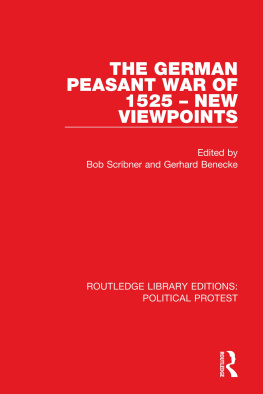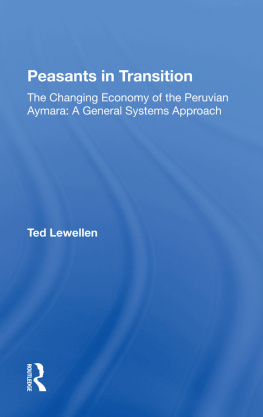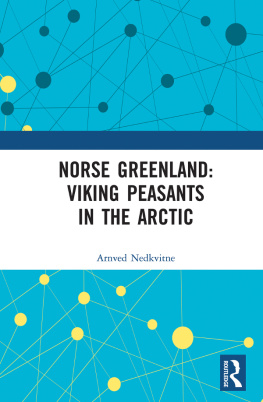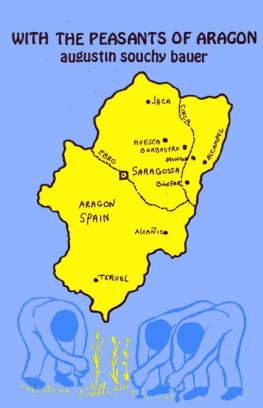Bax - The Peasants War in Germany, 1525-1526
Here you can read online Bax - The Peasants War in Germany, 1525-1526 full text of the book (entire story) in english for free. Download pdf and epub, get meaning, cover and reviews about this ebook. year: 1899, publisher: London S. Sonnenschein, genre: Detective and thriller. Description of the work, (preface) as well as reviews are available. Best literature library LitArk.com created for fans of good reading and offers a wide selection of genres:
Romance novel
Science fiction
Adventure
Detective
Science
History
Home and family
Prose
Art
Politics
Computer
Non-fiction
Religion
Business
Children
Humor
Choose a favorite category and find really read worthwhile books. Enjoy immersion in the world of imagination, feel the emotions of the characters or learn something new for yourself, make an fascinating discovery.
- Book:The Peasants War in Germany, 1525-1526
- Author:
- Publisher:London S. Sonnenschein
- Genre:
- Year:1899
- Rating:5 / 5
- Favourites:Add to favourites
- Your mark:
- 100
- 1
- 2
- 3
- 4
- 5
The Peasants War in Germany, 1525-1526: summary, description and annotation
We offer to read an annotation, description, summary or preface (depends on what the author of the book "The Peasants War in Germany, 1525-1526" wrote himself). If you haven't found the necessary information about the book — write in the comments, we will try to find it.
Bax: author's other books
Who wrote The Peasants War in Germany, 1525-1526? Find out the surname, the name of the author of the book and a list of all author's works by series.
The Peasants War in Germany, 1525-1526 — read online for free the complete book (whole text) full work
Below is the text of the book, divided by pages. System saving the place of the last page read, allows you to conveniently read the book "The Peasants War in Germany, 1525-1526" online for free, without having to search again every time where you left off. Put a bookmark, and you can go to the page where you finished reading at any time.
Font size:
Interval:
Bookmark:

This book made available by the Internet Archive.




PREFACE.
IN presenting a general view of the incidents of the so-called Peasants War of 1525, the historian encounters more than one difficulty peculiar to the subject. He has, in the first place, a special trouble in preserving the true proportion in his narrative. Now, proportion is always the crux in historical work, but here, in describing a more or less spontaneous movement over a wide area, in which movement there are hundreds of differ-^/ ent centres with each its own story to tell, it is indeed hard to know at times what to include and what to leave out. True, the essential ^ similarity in the origin and course of events renders a recapitulation of the different local risings unnecessary and indeed embarrassing for readers whose aim is to obtain a general notion. But the author always runs the risk of being waylaid by some critic in ambush, who will accuse him of omitting details that should have been recorded.
Again, the approximate simultaneity of the risings over a wide extent of territory makes it impossible to preserve chronological sequence in the general survey. Yet again, here, even more than elsewhere, discrepancies are to be found in different accounts of the same event, and the historian, writing for the general reader, must either reconcile them to the best of his power or choose between them. He cannot well give a wealth of variorum versions or enter into elaborate disquisitions justifying the view he takes. To do either would change the character of such a work as this from a volume designed for the average reader of history to a dissertation for the benefit of a specialist student of Reformation history.
I mention these difficulties as there is always a field in a work of this nature for the ingenuity of a hostile reviewer qui cherche les puces dans la paille to hunt out minutid on which two opinions may be held. By enlarging upon them, he attempts to disparage the work as a whole. A former volume, dealing with German Society in Reformation times, received favourable recognition, I believe, in every quarter save one. The one hostile review appeared anony
mously in a literary journal, which, if I mistake not, was then making a special point of signed reviews. Internal evidence identified the critic as a gentleman who has been believed, rightly or wrongly, to have been for some years preparing material for a work on German Reformation History. Of the somewhat laboured attempts in the article in question to prove the inadequacy of my book, I will only mention one. Quoting a narrative passage, the reviewer stigmatised it as in the style of Zimmermann, which, he observes, " belongs to an obsolete method of writing history ". Now, Zimmer-mann's method was to bring an historical event, as realistically as his power of language would go, before the mind's eye of the reader. This method our superfine and would-be up-to-date critic describes as obsolete! I need only point out that, if so, the late Professor Freeman and the late Mr. J. R. Green, not to speak of other leading historians, English and foreign, must be reckoned as exceedingly " obsolete" persons. That Zimmermann possessed in an exceptional degree the gift of such descriptive writing has been remarked by all who have read him. Personally, I make no claim to the power, and
do not wish to excuse my own shortcomings, but I can only say that if such writing be obsolete, the sooner it be revived the better. Surely the faculty of reproducing the past as a living present remains the ideal of historical literary style !
The literature of the Peasants War is considerable in German-speaking countries. An immense amount of exceedingly careful research has been applied to the collection and elucidation of documents relating to the movement in different places and districts. Just as in Paris there are many retired scholars whose hobby it is to spend their lives in collecting every scrap of information concerning the French Revolution and the lives of the actors in it, so here, although perhaps on a smaller scale, there are many German bibliophiles who have devoted years to investigating in elaborate detail the facts in connection with the events and persons of the 1525 revolt. Instead of cumbering the text with a multitude of footnotes, I give here a list of some principal authorities consulted :
Zimmermann's Allgemeine Geschichte des grossen Bauernkrieges.
Do., 1891 edition, edited by Wilhelm Bios.
PREFACE.
IX
Bezold's Geschichte der deutsc hen Re formation. Janssen's Geschichte des deutschen Volkes. Egelhaafs Deutsche Geschichte im i6ten.
Jahrhundert.
Lamprecht's Deutsche Geschichte. Ranke's Deutsche Geschichte im Zeitalter der
Reformation. Weill's Der Bauernkrieg. Hartfelder's Geschichte des Baiiernkrieges in
Siiddeutschland.
Amongst the collection of contemporary documents and early sources that have been found useful may be mentioned :
Schreiber's Der deutsc he Bauernkrieg gleich
seitige Urkunden. Baumann's Akten zur Geschichte des deutschen
Bauernkrieges aus Oberschwaben. Zimmersche Chronik. Villinger Chronik. Rothenburger Chronik. Schwdbisch Hall, Chronika, etc. Sebastian Franck's Chronik. Melancthon's pamphlet on Thomas Miinzer,
and other documents in Luther's Sdntmt
liche Werke.
b
PREFACE.
Tagebuch des Her olds Hans Lutz von Augsburg, published from the original manuscript in Zeitschrift filr die Gesckichte des Oberrheins. Lorenz Fries's Gesckichte des Bauernkrieges
in Ostfranken.
Gotz von Berlichingen's Lebensbeschreibung. Haarer's Eigentliche Warhafftige Beschrei
bung dess Bawrenkriegs. The various pamphlets by Thomas Miinzer. Amongst monographs on special subjects connected with the events of 1525 may be mentioned :
The chapters relating to the revplt in Thur-ingia, by Kautsky, in the Geschichte des Sozialismus, Band i. Seidemann's Thomas Munzer. Blos's Pater Ambrosius. Barthold's Georg von Frundsberg. I give the above partial list to obviate the inconvenience of crowding up the text with references. Of all the works on the Peasants War, that of Zimmermann still holds the first place, alike for comprehensiveness of view and accuracy. Many details, it is true, have been corrected and expanded by later research, but
for sympathetic understanding of the movement, combined with historical insight, Zimmermann has yet hardly been equalled and certainly not surpassed.
To render the present volume complete, a map of Reformation-Germany (from Spruner-Menke's Historischer Atlas) has been included.
E. B. B.
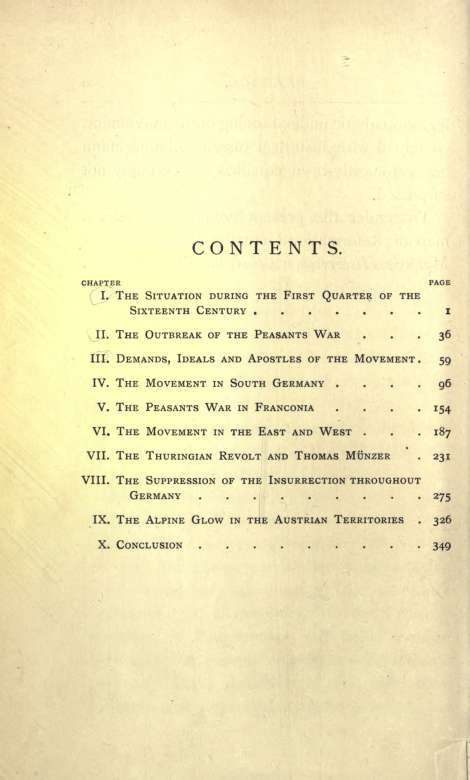
THE PEASANTS WAR.
CHAPTER I.
THE SITUATION DURING THE FIRST QUARTER OF THE SIXTEENTH CENTURY.
IN a former volume 1 we considered at length the condition of Central Europe at the close of the period known as the Middle Ages. It will suffice here to recapitulate in a few paragraphs the general position.
Font size:
Interval:
Bookmark:
Similar books «The Peasants War in Germany, 1525-1526»
Look at similar books to The Peasants War in Germany, 1525-1526. We have selected literature similar in name and meaning in the hope of providing readers with more options to find new, interesting, not yet read works.
Discussion, reviews of the book The Peasants War in Germany, 1525-1526 and just readers' own opinions. Leave your comments, write what you think about the work, its meaning or the main characters. Specify what exactly you liked and what you didn't like, and why you think so.




